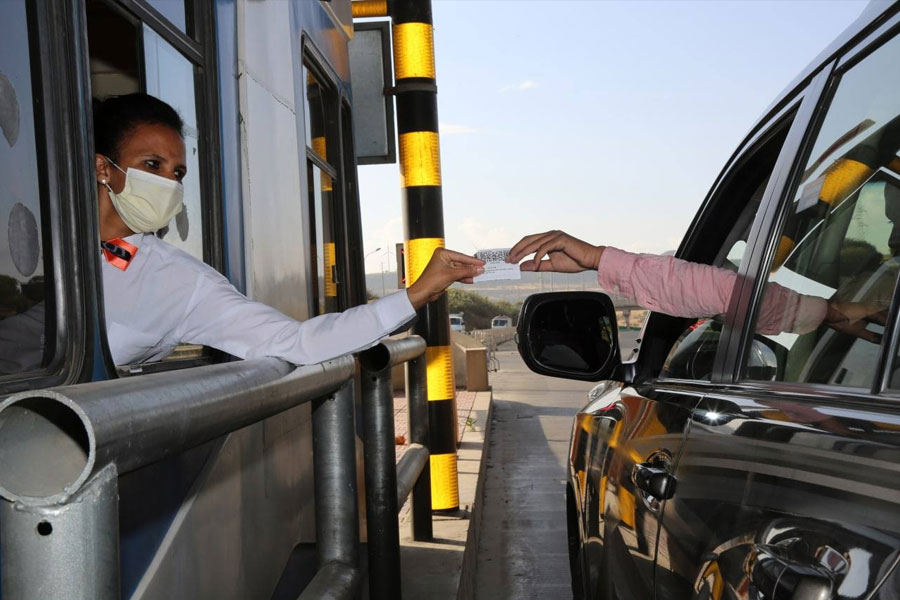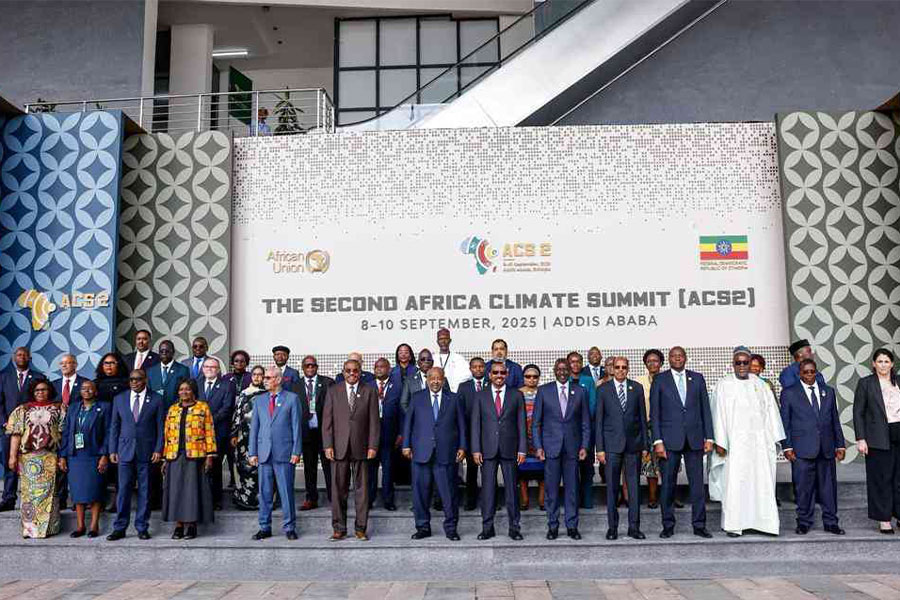
Viewpoints | Dec 30,2023
Nov 16 , 2024
By Nadia Calvino
Climate change is a global challenge that requires global cooperation. With institutions like European Investment Bank (EIB) Group investing tens of billions of dollars annually in green transition projects, and multilateral development banks channelling a record 125 billion dollars into green projects in 2023, the momentum is undeniable, writes Nadia Calvino, president of the EIB, in this commentary provided by Project Syndicate (PS).
This year's United Nations Climate Change Conference (COP29) in Azerbaijan’s capital, Baku, is taking place against a tumultuous geopolitical backdrop. In addition to shifting strategic alliances, trade tensions, and violent conflict, the "year of elections" has ushered in a period of heated political rhetoric and led to changes in government.
But this should not distract us from the current state of the planet and the real economy. The effects and costs of climate change are increasing. Extreme weather events, from hurricanes in the Caribbean to catastrophic floods in Europe and droughts in the Amazon, are growing more frequent and intense, enhancing the risk of financial instability, especially in the world's most vulnerable and highly indebted countries.
At the same time, an energy revolution is already in full swing. Renewable energy deployment is growing exponentially, and annual investment in clean power sources now far exceeds that in fossil fuels. Citizens and companies are also increasingly aware of the need to invest in climate change adaptation. The European Investment Bank Group's most recent climate survey shows that 94pc of Europeans and 88pc of Americans support adaptation measures, while around half of respondents say that such measures should be a national priority.
Economic growth is quickly decoupling from carbon dioxide emissions, owing to breakthroughs and innovation in clean-energy generation and efficiency technologies that help combat climate change and boost competition. The European Union (EU) has been a pioneer in this area, cutting greenhouse gas (GHG) emissions by more than one-third since 1990, over which time its economy grew by 68pc. The International Energy Agency (IAEA) forecasts renewables will meet nearly half the global electricity demand by 2030.
Emissions from the EU, the United States (US), and most advanced economies are declining even as their economic output expands, while China's may peak this year, much earlier than expected.
After years of warnings and calls for action, there are finally signs that the green transition has shifted into high gear. The reason is simple. Clean energy is now cheaper and more efficient than fossil fuels, largely owing to improved battery storage. As a result, the right thing to do for our planet is also the smart thing to do for our economies. Every dollar invested in climate adaptation and resilience can save between five and seven dollars in future disaster costs, not to mention lives and livelihoods.
Most businesses are well aware of these savings and have acted accordingly.
Around 60pc of the more than 12,000 firms across the EU and the US surveyed by the EIB Group are investing in the green transition, while 90pc have taken measures to reduce GHG emissions. Reducing waste, lowering costs, and bolstering resilience makes good business sense. More than international pressure, passionate rhetoric, and public commitments, this will encourage companies and investors to finance the decarbonisation of the global economy.
At the EIB Group, we commit more than half of our annual lending – nearly 53 billion dollars a year – to projects accelerating the green transition in Europe and beyond. Investing in climate resilience and adaption at home safeguards our infrastructure, agriculture, and livelihoods. It enables a robust, rapid recovery from disasters, such as the deadly floods that inundated entire towns in Central Europe in September and surged through my home country, Spain, in October.
But a successful transition is one that is both swift and just, ensuring that no one is left behind. Developing countries and low-income households are more vulnerable to the perils of global warming and the distributional impact of green-transition policies, as emerging technologies disrupt legacy industries and established business models. The EIB is therefore increasing its share of green investments outside the EU, supporting small island states at the front line of climate change, financing resilient infrastructure around the world, and fostering the global green bond market.
Multilateral development banks have taken the lead on this front, investing a record 125 billion dollars in green projects in 2023, and doubling the amount of private-sector finance mobilised compared to 2022. In addition to exceeding our pledges, we are committed to working together to continue mobilising climate finance in the coming years.
Global cooperation is the only way to drive planetary-scale transformation. The green transition is underway, partly thanks to our joint efforts. But we should stay the course, building on existing international fora and decision-making frameworks to find win-win solutions reinforcing all countries' security, stability, and well-being.
PUBLISHED ON
Nov 16,2024 [ VOL
25 , NO
1281]


Viewpoints | Dec 30,2023

Fortune News | Nov 12,2022

Viewpoints | May 04,2019

Radar | Sep 14,2024

Sunday with Eden | Jul 18,2021

My Opinion | Aug 29,2020

Fortune News | Sep 21,2025

My Opinion | Feb 13,2021

My Opinion | Dec 02,2023

Viewpoints | Mar 11,2023

Photo Gallery | 175933 Views | May 06,2019

Photo Gallery | 166148 Views | Apr 26,2019

Photo Gallery | 156560 Views | Oct 06,2021

My Opinion | 136853 Views | Aug 14,2021

Dec 22 , 2024 . By TIZITA SHEWAFERAW
Charged with transforming colossal state-owned enterprises into modern and competitiv...

Aug 18 , 2024 . By AKSAH ITALO
Although predictable Yonas Zerihun's job in the ride-hailing service is not immune to...

Jul 28 , 2024 . By TIZITA SHEWAFERAW
Unhabitual, perhaps too many, Samuel Gebreyohannes, 38, used to occasionally enjoy a couple of beers at breakfast. However, he recently swit...

Jul 13 , 2024 . By AKSAH ITALO
Investors who rely on tractors, trucks, and field vehicles for commuting, transporting commodities, and f...

Oct 18 , 2025
The political establishment, notably the ruling party and its top brass, has become p...

Oct 11 , 2025
Ladislas Farago, a roving Associated Press (AP) correspondent, arrived in Ethiopia in...

Oct 4 , 2025
Eyob Tekalegn (PhD) had been in the Governor's chair for only weeks when, on Septembe...

Sep 27 , 2025
Four years into an experiment with “shock therapy” in education, the national moo...

Oct 18 , 2025 . By NAHOM AYELE
In a sweeping reform that upends nearly a decade of uniform health insurance contribu...

A bill that could transform the nutritional state sits in a limbo, even as the countr...

Oct 18 , 2025 . By SURAFEL MULUGETA
A long-planned directive to curb carbon emissions from fossil-fuel-powered vehicles h...

Oct 18 , 2025 . By BEZAWIT HULUAGER
Transaction advisors working with companies that hold over a quarter of a billion Bir...